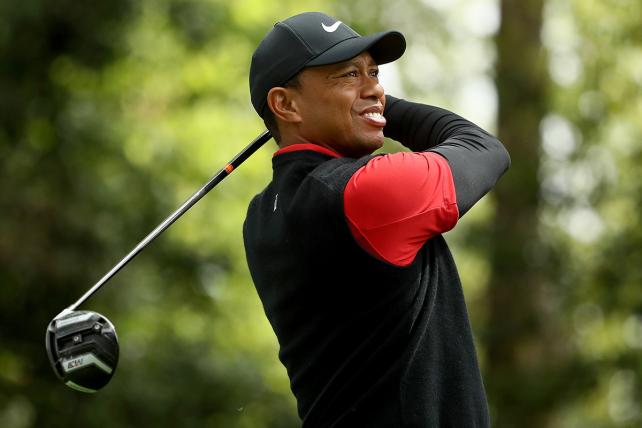Tiger Woods’ Lazarus act and Jordan Spieth’s near-miraculous comeback bid helped propel CBS’ ratings for the final round of the 2018 Masters to a three-year high, as millions of viewers tuned in on Sunday afternoon to take in the drama staged by golf’s old guard and new wave.
According to Nielsen live-plus-same-day data, CBS’ coverage of the final round from Augusta National averaged a bit north of 13 million viewers, up 18 percent compared to last year’s 11.1 million viewers. Sunday’s broadcast notched a 7.9 household rating, an improvement of 16 percent versus the year-ago 6.8, as 18 percent of the TVs in use at the time were tuned in to CBS.
Sunday’s big numbers came on the heels of a 24 percent lift in CBS’s third round overnight ratings and a Friday ESPN telecast of second-round action that marked the cable network’s highest Masters deliveries in five years. (ESPN averaged 3.46 million viewers over the course of its two-day Masters coverage, up 46 percent compared to last year’s 2.4 million.)
While Woods was never really in contention, finishing tied for 32nd place after closing out with a 69 on Sunday, CBS gave the 14-time major champ plenty of screen time in what was his first appearance at Augusta in three years. And as much as Woods may have struggled with his irons throughout the tournament, the sight of golf’s aging, battered superstar suited up in his trademark red-and-black Sunday best was thrilling to fans and TV ad sales executives alike.
TV has been as indispensable a part of Woods’ metier as his trusty Scotty Cameron putter. Having been groomed for the small screen since first appearing as a not-quite-three-year-old duffer on “The Mike Douglas Show” back in 1978, Woods is golf’s all-time biggest TV draw. In 1997, when he earned his first Masters victory, Woods helped CBS draw a record 14.1 household rating, and his follow-up triumph in 2001 was instrumental in scaring up the second-highest Augusta rating (13.3). Now, a little more than a year after telling ESPN’s Scott Van Pelt that he might never play competitive golf again if his beleaguered back didn’t learn to cooperate with his outsized ambitions, Woods is playing well enough to suggest that he’ll be around to help boost the ratings for Fox’s June presentation of the U.S. Open.
To be sure, in nearly pulling off the greatest comeback in the 82-year history of the Masters, Spieth can rightly lay claim to responsibility for a good deal of CBS’ Sunday ratings surge. Nine shots behind leaders Patrick Reed and Rory McIlroy, the Under Armour-backed Texanbirdied and eagled his way from a one-under-par on the first hole to a nine-under on 17. An errant shot into the trees on the final hole derailed Spieth’s heroic effort, and when all was said and done he finished 13-under, two shots shy of Reed and one behind a resurgent Rickie Fowler. (McIlroy, meanwhile, finished tied for fifth after failing to find the green and eking out a nightmarish 74 in Sunday’s finale.)
For more than 30 years, CBS’s Jim Nantz has characterized the Masters as “a tradition unlike any other,” and the uniqueness of the event extends to the very exclusive relationship the network shares with Augusta. Since 1956, CBS has negotiated single-year broad rights deals with the club, and at an estimated payout of between $10 million and $15 million, the Masters are practically a steal. That said, CBS doesn’t exactly make a killing on ad sales revenue, as the commercial inventory is limited to three official sponsors in AT&T, IBM and Mercedes-Benz.
When the goings-on at Augusta hit the airwaves every April, commercial interruptions are limited to a spartan four minutes per hour, or roughly a quarter of the average broadcast spot load. Per iSpot.tv data, Mercedes aired 13 spots during Sunday’s round, while AT&T and IBM ran 11 ads each. All told, golf fanatics who watched the five-hour CBS broadcast in its entirety were exposed to just 18.5 minutes of total ad messaging.
By

